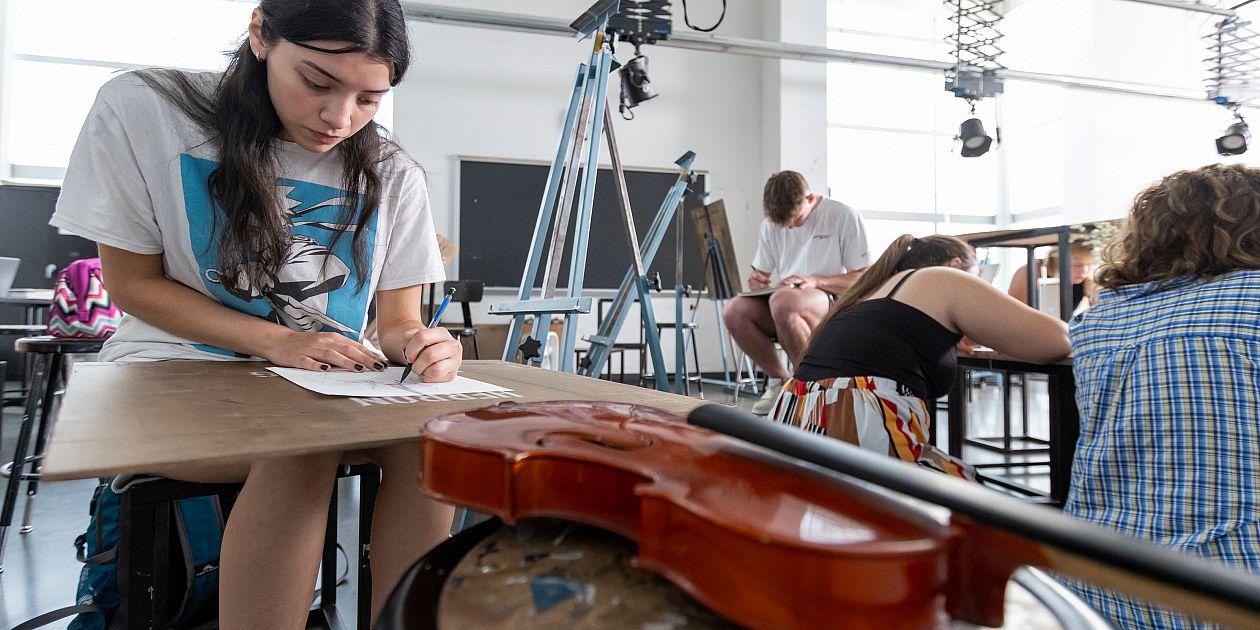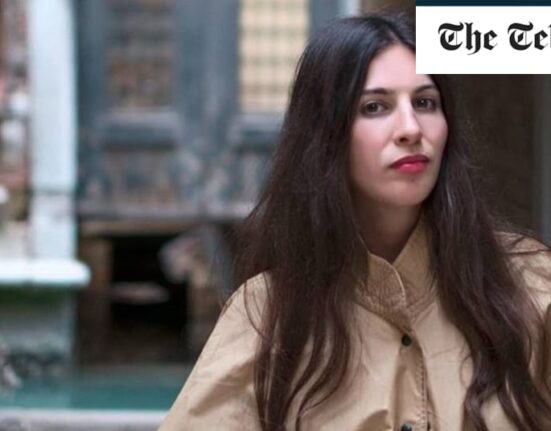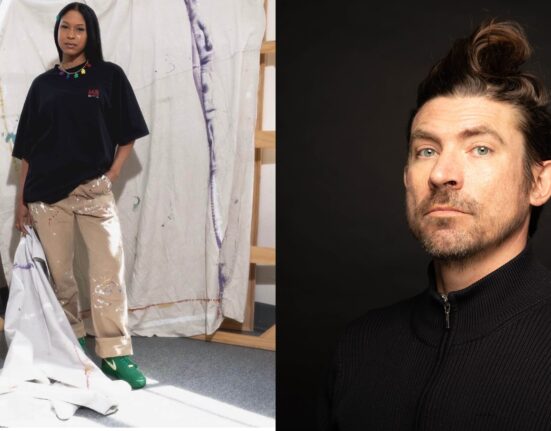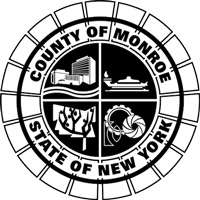BLOOMINGTON, Ind. — Indiana University is investing in new leaders and initiatives in arts, humanities and culture. At a time of accelerating change in and around arts and humanities, the university will expand institutional support, create stronger connections between its hallmark strengths, and drive expanded cultural engagement with local communities across the state and beyond.
These commitments represent IU’s dedication to leveraging arts and culture to advance people’s understanding of the world and revitalize communities, bolstering the university’s reach and impact as a global arts and humanities leader.
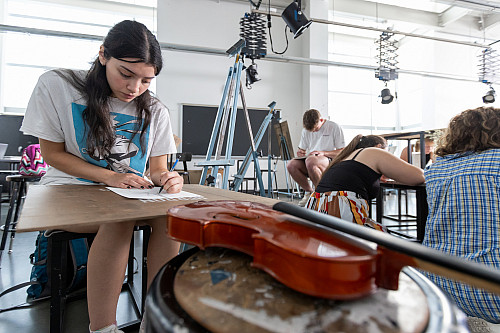
New leadership positions in IU Research and at IU Bloomington will help maximize the impact of arts and humanities initiatives across IU’s campuses. Photo by Liz Kaye, Indiana University“Driven by the scholarship and creative activity of our world-renowned faculty, Indiana University’s reputation for excellence in the arts and humanities is unmatched,” IU President Pamela Whitten said. “As we build on IU’s longstanding commitments to arts and humanities research, we will help solve the world’s complex problems and foster greater understanding of humanity.”
To spearhead these efforts across multiple schools and campuses, IU has created two new leadership positions, one in IU Research and the other on the IU Bloomington campus. Together, they will help shape university and campus-wide strategy to maximize the impact of arts and humanities initiatives and research across IU’s world-class schools, including the Jacobs School of Music, the Herron School of Art & Design, and the Eskenazi School of Art, Architecture + Design; IU’s extensive humanities programs; and IU’s world-renowned museums, galleries and libraries, including the Eskenazi Museum of Art and Lilly Library.
Ed Dallis-Comentale was named assistant vice president for arts and humanities research, effective Nov. 13. In his new role, Dallis-Comentale serves as the chief arts and humanities research officer for all of IU’s campuses. Most recently, he served as director of both the Arts and Humanities Council at IU Bloomington and the Gayle Karch Cook Center for Public Arts and Humanities, and as strategic advisor for arts and humanities to the vice president for research.
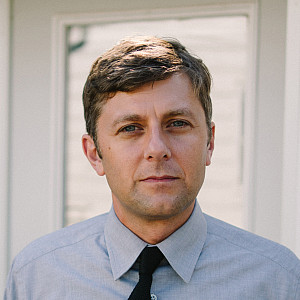
Ed Dallis-Comentale has been named assistant vice president for arts and humanities research.“Research and creativity are crucial avenues to understand and address the most pressing challenges and exciting opportunities of our day,” said Russell Mumper, vice president for research. “I am confident that Ed’s leadership in this new role will catalyze new engagement of arts and humanities to grow research discovery, creative activity and translation of novel ideas into tangible impacts.”
As a member of the leadership team for IU Research and reporting to the associate vice president for research development, Dallis-Comentale will drive expansion of the already thriving arts and humanities ecosystem across IU, increasing external funding and partnerships, and building interdisciplinary research teams in support of the IU 2030 strategic plan.
To support this university-wide work, IU Research is also making several other strategic new and expanded investments, including overseeing the recently expanded Presidential Arts and Humanities Fellows Program and bolstering the Public Arts and Humanities Project. It has also launched the new Arts and Humanities Futures program, an initiative that will unite researchers from a broad scope of disciplines and create leading “think tanks” to address contemporary issues and inspire new ideas and innovations related to artificial intelligence, ecological resilience, Indigenous cultures and communities.
Additionally, IU Research will expand access to the Eastman Residency for the Arts and Humanities, which supports IU faculty by providing creative residencies on the IU-owned Eastman property on Martha’s Vineyard.
In conjunction with Dallis-Comentale’s appointment, and following consultation with academic deans and the IU Bloomington Arts & Humanities Council, IU Bloomington will launch a national search for a dynamic and visionary faculty innovator to serve as the senior campus-wide leader for arts and humanities.
Reporting to the IU Bloomington provost and executive vice president, this new senior leadership position for arts and humanities will collaborate across IU’s rich arts and cultural landscape to bring forward a comprehensive, future-facing vision and plan for arts and humanities on the campus.
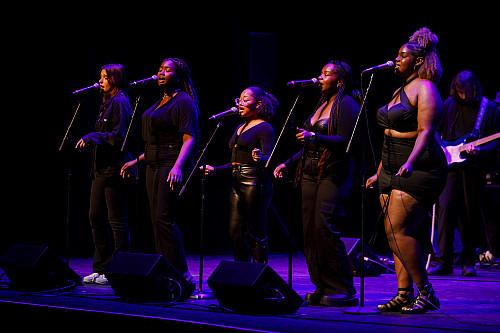
The IU Soul Revue performs during the First Thursdays Festival in the IU Auditorium at IU Bloomington. Photo by James Brosher, Indiana UniversityThese efforts will include increasing student and community engagement with IU Bloomington’s extraordinary offerings in arts and humanities; fostering new creative collaborations with cultural institutions and community organizations; and growing visibility and recognition for IU Bloomington’s local and global leadership in arts and humanities broadly.
“It is so often through engagement with the arts and humanities that we learn to question our assumptions, probe the contexts in which we live and dare to design transformative systems and objects,” said Rahul Shrivastav, IU Bloomington provost and executive vice president. “And this new leader will have the opportunity to steward those activities across the breadth of our campus’s schools and units, as well as in our engagements with stakeholders.”
Details regarding a search advisory committee and timeline will be shared in the coming days, along with interim leadership for the Bloomington Arts and Humanities Council and the Gayle Karch Cook Center for Public Arts and Humanities while the search progresses.
IU Bloomington has also committed funding for new faculty hires in arts, humanities and cultural areas, including music business, songwriting and videogame composition. The campus has begun arts-connected renovations that have so far included updates in the Jacobs School of Music’s Recital Hall, Ford Hall and Auer Hall.
Supported by dedicated arts and humanities leadership and through these initiatives and investments, IU will increase participation in artistic and cultural activities and curricular offerings, further develop new and innovative approaches in arts and culture, and grow IU’s connections locally and globally.
What they are saying:
Chris Liu, associate vice president for research development: “Bringing together experts in the arts and humanities and other disciplines across IU’s campuses will lead to new, transformational, large-scale research that has the power to change mindsets, culture and society. I’m excited to work with Ed in supporting faculty research and creative activities across IU’s campuses.”
Rick Van Kooten, executive dean of the College of Arts and Sciences: “The arts and humanities play pivotal roles in shaping IU Bloomington students’ education and enriching their experiences both inside and outside the classroom, equipping our graduates with knowledge and skills that prepare them to lead meaningful lives and pursue rewarding careers. In addition, the wider IU community, the state and society benefit from the leading-edge research, creative activity and teaching in these disciplines by our preeminent faculty in the College. I commend this continued commitment to and investment in the arts and humanities that are the heart and soul of our university.”
Abra K. Bush, David Henry Jacobs Bicentennial Dean of the Jacobs School of Music: “We are delighted that the university and campus are investing in the arts and humanities in substantive ways and look forward to how this will strengthen existing partnerships and build new collaborations. Jacobs will be greatly enhanced by new faculty and opportunities to broaden our programs and respond to market trends in music higher education for the future.”
Peg Faimon, founding dean of the Eskenazi School of Art, Architecture + Design: “The Eskenazi School is excited for these new investments and the potential for new initiatives and collaborations across Indiana University and on the Bloomington campus. We look forward to enhancing the lives of our students, faculty, staff and the community.”
Greg Hull, dean of the Herron School of Art & Design: “IU has long been a driver of creative innovation in Indiana, which is evident in our state’s public art spaces, galleries, architecture, music, theaters, businesses and more. Reinforcing the value our university places on the arts and humanities and building upon the robust opportunities IU offers across its campuses will lead to continual advancements that benefit our state and beyond.”

